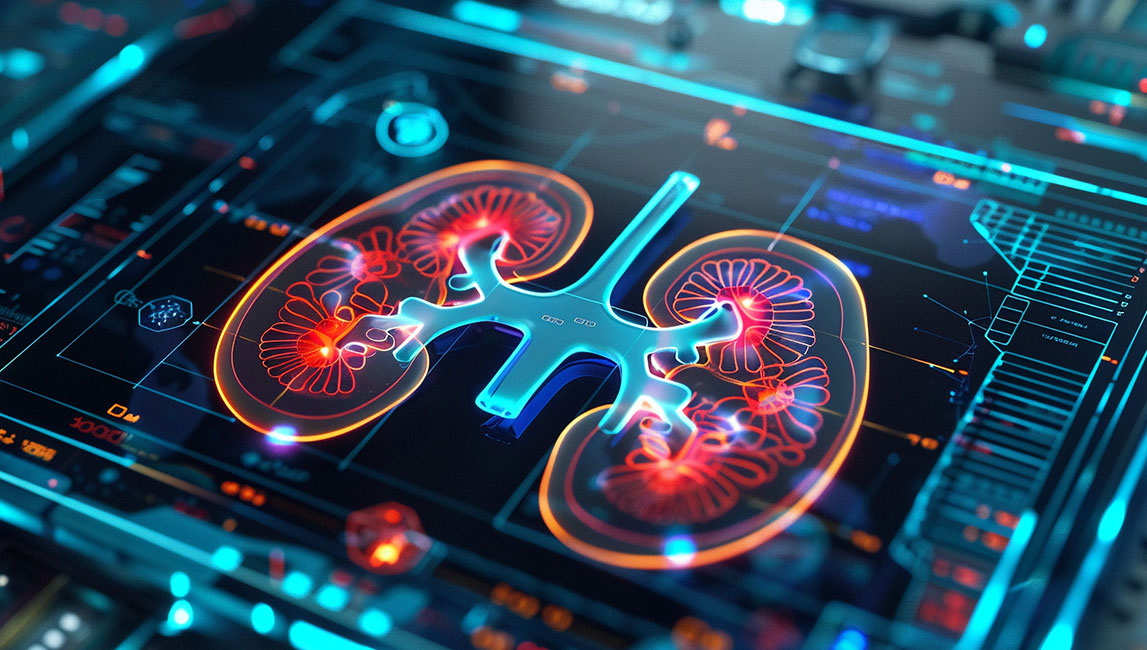Case Study
Enhancing Device Interoperability, Cybersecurity, and Workflow Efficiency for Critical Care

New digital features added
Data transmission rate across systems
Security issues identified and mitigated
Background
The client is a global leader in critical care, specializing in intensive care unit (ICU) therapies, facing challenges in ensuring the application of organ support therapies for critically ill patients, particularly those suffering from multi-organ failure. Their device therapy platform, which includes Continuous Kidney Replacement Therapy (CKRT), is crucial for providing a wide range of therapeutic applications in intensive care.
With a pressing need to roll out the device globally with continuous development, the client aimed to enhance and revamp its functionality, focusing on treatment modalities, usability, and digital features. They sought a technical partner to upgrade the device software for new digital ecosystem functionalities, ensure seamless connectivity with various systems and applications, facilitate secure data transfer, and adhere to stringent cybersecurity and interoperable standards. The stakes were high, as the success of this initiative directly impacted patient outcomes and the efficiency of critical care delivery.
Challenge
The client faced a series of operational and clinical challenges that compromised ICU workflow efficiency and patient safety. A major issue was the fragmented, decentralized alarm management across ICUs. Clinicians were inundated with disparate alarm notifications from multiple bedside devices, each requiring manual intervention. This lack of centralized orchestration led to cognitive overload and delayed response times, delays that, in critical care settings, could directly risk patient survival.
Manually entering prescription data into therapeutic devices increases the risk of human error. The absence of automated prescription transfer mechanisms meant that clinicians were burdened with repetitive, error-prone data entry tasks, diverting their focus from direct patient care. This inefficiency not only strained clinical resources but also increased the risk of transcription errors, potentially leading to incorrect dosing, delayed treatments, or adverse patient outcomes.
The challenges faced due to alarm decentralization and manual prescription workflows exposed systemic vulnerabilities in the client’s ICU operations. These challenges highlighted the urgent need for a unified solution to centralize alarm monitoring, automate prescription data, and ensure compliance with safety, interoperability, and digital health standards.
Solution
Tata Elxsi implemented a comprehensive solution to enhance the alarm system and automate prescription transfers. Our domain experts collaborated with the client to develop a centralized monitoring system that integrated all alarm messages into a single platform for better visibility and management. This system provided real-time alerts and notifications to a central dashboard, ensuring quick responses from healthcare staff. It seamlessly integrated with existing monitoring equipment and hospital information systems, featuring a user-friendly interface for easy adoption by administration staff.
Additionally, Tata Elxsi automated the prescription transfer process to devices, eliminating manual data entry and reducing workload. This system integrated with the hospital's Electronic Health Record (EHR) system, ensuring real-time synchronization and secure user authentication. By enhancing efficiency, accuracy, and patient safety, Tata Elxsi's solution supported healthcare professionals in delivering high-quality patient care.

Impact
- 50% improvement in response time for critical alarms, enhancing patient safety and care.
- 60% improvement in data management and report generation, ensuring accurate and timely prescription information.
- Centralized monitoring allowed quicker identification and response, streamlining alarm management processes.
- Automating the data transfer process minimized manual entry errors, improving patient safety and treatment outcomes, leading to more efficient operations within the healthcare facility.
Services rendered
Tata Elxsi
- Device Software Enhancement
- Digital Ecosystem Integration
- Secure Data Transfer
- Cybersecurity Compliance
- Interoperability Standards Implementation
- Automated Testing and Quality Assurance
Transforming Healthcare with AI: A Technical Roadmap to Innovation, Compliance, and Metrics
As the healthcare industry continues to evolve, Artificial Intelligence (AI) is emerging as a key enabler of innovation, compliance, and operational efficiency.
